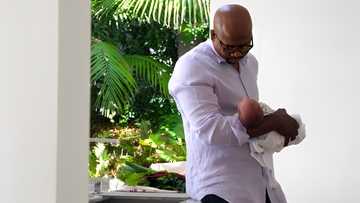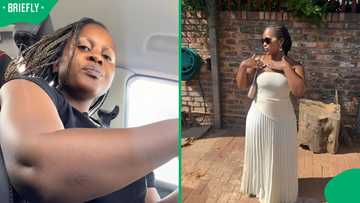My In-Laws Stole Everything After My Husband Died: I Fought Back and Won
The gavel struck, a sound like a single, devastating heartbeat, but I barely heard it over the pounding in my own ears. I was standing in the packed courtroom, wearing a suit I'd bought on clearance three years ago, facing a sea of expectant faces, my late husband's family.

Source: Getty Images
"The court finds in favour of Ms Olivia Maseko," the judge declared. "Full and final judgment is granted regarding the distribution of assets."
A collective gasp swept the gallery. My heart, which had been a dead weight in my chest for years, suddenly felt light, almost ready to float out of me. It wasn't about the money anymore. It hadn't been for a long, long time. But I wasn't finished. This was the moment I'd replayed in my head a thousand times during sleepless nights on various friends' couches.
I pushed the heavy file across the polished table to my attorney, a woman named Thandi who had become more like a sister. She gave me a slight, knowing nod.

Source: Getty Images
"Your Honour," Thandi stated, her voice calm but steel-edged, "we have one final piece of evidence to submit. We feel it speaks to the underlying intent and pattern of behaviour exhibited by the defendants."
She held up a leather-bound journal. The air in the room thickened with silent panic. My late mother-in-law, Mrs Maseko Senior, went pale, her eyes darting nervously towards her husband.
"This," Thandi continued, "is a personal ledger, recovered from a safe deposit box known only to my client and her late husband, Mr Zolani Maseko."
The journal wasn't a love letter or a secret will. It was far worse.

Source: UGC
It was a meticulous, handwritten log detailing every penny, every gift, every investment, every joint account that my husband had transferred out of our joint ownership and into trusts controlled solely by his parents.
It listed every attempt he had been forced to make to quietly undermine my security, beginning just months after our second child, Amelia, was born. The last entry, dated three weeks before the accident, was a single, trembling line: "I can't do this anymore. I have to tell her."

Read also
My Grandma Fell and Lay Alone for Two Days — Until Her Neighbours Found Her and Saved Her Life
The Masekos had not only tried to erase me after Zolani's death; they had been telling him to do it for years while he was alive. The silence in the courtroom was so absolute it felt like an accusation. I met my mother-in-law's gaze.

Source: Getty Images
She saw a woman who was no longer poor, no longer broken, and no longer invisible. She saw the ghost of the man she'd manipulated and the fire of the woman she'd underestimated. I felt a grim, cold satisfaction as my name, Olivia, echoed with undeniable force in that sterile room.
The day Zolani died, he didn't just leave me; he left a gaping hole in our life, a chasm I didn't know I'd have to cross alone. We were the kind of couple people envied: a little messy, a lot in love.
Zolani, with his booming laugh and big heart, was a successful civil engineer. I was a freelance marketing consultant, working from our beautiful, double-storey house. We had two perfect, boisterous children, Kwanda and Amelia. We'd built a life that felt sturdy, impenetrable..
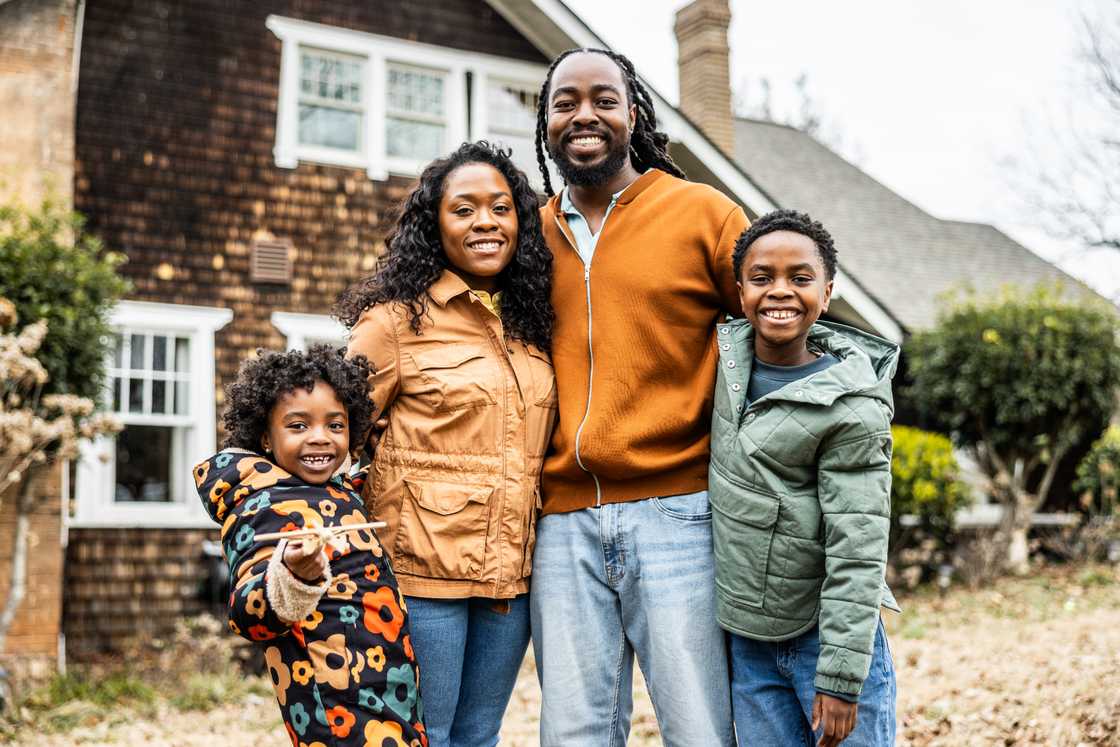
Source: Getty Images
Then came the call. A slick, black road, a multi-vehicle crash on the N1, and a paramedic on the other end of the line whose voice was too clinical, too flat. Just like that, our world shattered.
The funeral was a blur of black clothes, lilies, and forced solemnity. It was after the wake, when the last casserole dish had been cleared, that the chill set in.
The Maseko family, Zolani's parents and his two older brothers, descended like a flock of well-dressed vultures. They had always been cool, reserved people, valuing legacy and appearance over warmth, but their new demeanour was arctic.
"Olivia, dear," my father-in-law, a man who once called me 'Daughter,' said with no affection, "we'll be handling all of Zolani's affairs. It's for the best. You're too distraught."
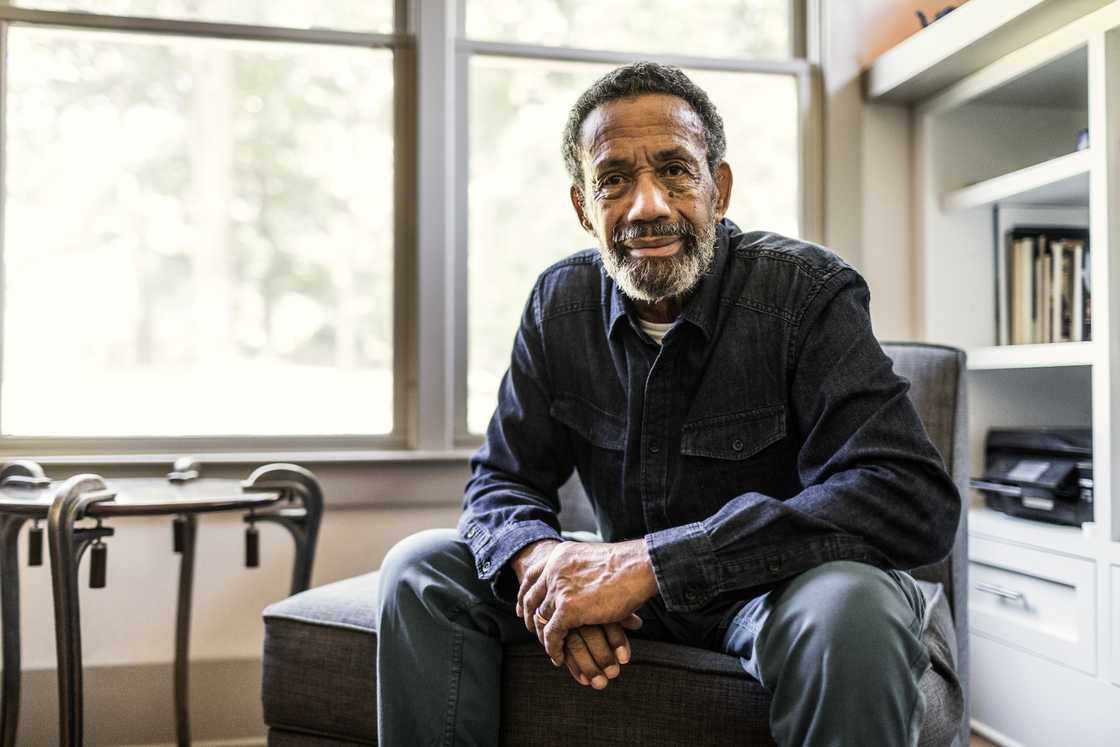
Source: Getty Images
It started small. They changed the locks on the home office, claiming they needed to secure "company documents." Then, they froze the joint credit card, saying they were 'protecting us' from fraudulent charges.
Within two weeks, I was locked out of Zolani's primary bank account. An account I had been depositing my consultancy checks into for five years.
"It appears," their lawyer informed me with a sickening smirk, "that the house, the business assets, and all significant financial holdings were legally in Mr Zolani Maseko's name alone."
It was a cold, brutal fact that contradicted years of comforting marital assumptions. Everything I thought was "ours" was legally "his." And now, his family claimed "his" belonged to them.
They took the keys to our two cars.

Source: Getty Images
They even demanded the watch Zolani wore every day, claiming it was an heirloom that needed to be "properly appraised" before I could keep it.
The theft wasn't just material; it was personal. They were systematically dismantling every memory, every comfort, every anchor I had left. The message was clear: You are no longer a Maseko. You are an inconvenience.
The gloves came off when they filed the paperwork in court. It was an assault on my reality, a calculated move to not only strip me of assets but to erase my children's right to their own father's name.
The first beat was the eviction notice. Despite being married to their son for ten years, the family's legal team argued I was essentially a tenant in a home Zolani had fully secured under a complex trust structure. I had 60 days to vacate the premises.

Source: Getty Images
I was numb, but I had to protect my kids.
The second beat was the most brutal, the one that broke me down into raw, heaving tears one night in a cheap motel room. They questioned paternity.
"Given the suddenness of the late Mr Maseko's passing," their statement read, "and the substantial assets involved, the family requests that Ms Maseko and the two minor children submit to DNA testing to establish biological lineage before any claim to inheritance is considered."
The insinuation was monstrous, a public slander designed to humiliate and destroy me. My children, my sweet, innocent Kwanda and Amelia, were being used as pawns in a game of greed.
It was a vicious blow that went beyond money; it was an attack on my honour and the sanctity of my marriage.

Source: Getty Images
I couldn't shield them from the stress, but I could protect them from the filth.
I made the hardest decision of my life: I sent Kwanda and Amelia to live with my sister, Siyanda, three provinces away. We cried a gut-wrenching farewell at the taxi rank, a moment that felt like an amputation.

Read also
He Vanished The Day After I kept The Baby — Two Years Later He Arrives as My Sister’s Boyfriend
Alone, I couch-surfed and took whatever temporary work I could find, such as data entry and coffee shop shifts, to pay Thandi's retainers. The depression was a heavy cloak, suffocating me. I felt like a failure, a ghost in my own life.
"Don't you have any family, Olivia?" my mother-in-law had once asked, her voice dripping with scorn, implying my own people were insignificant.
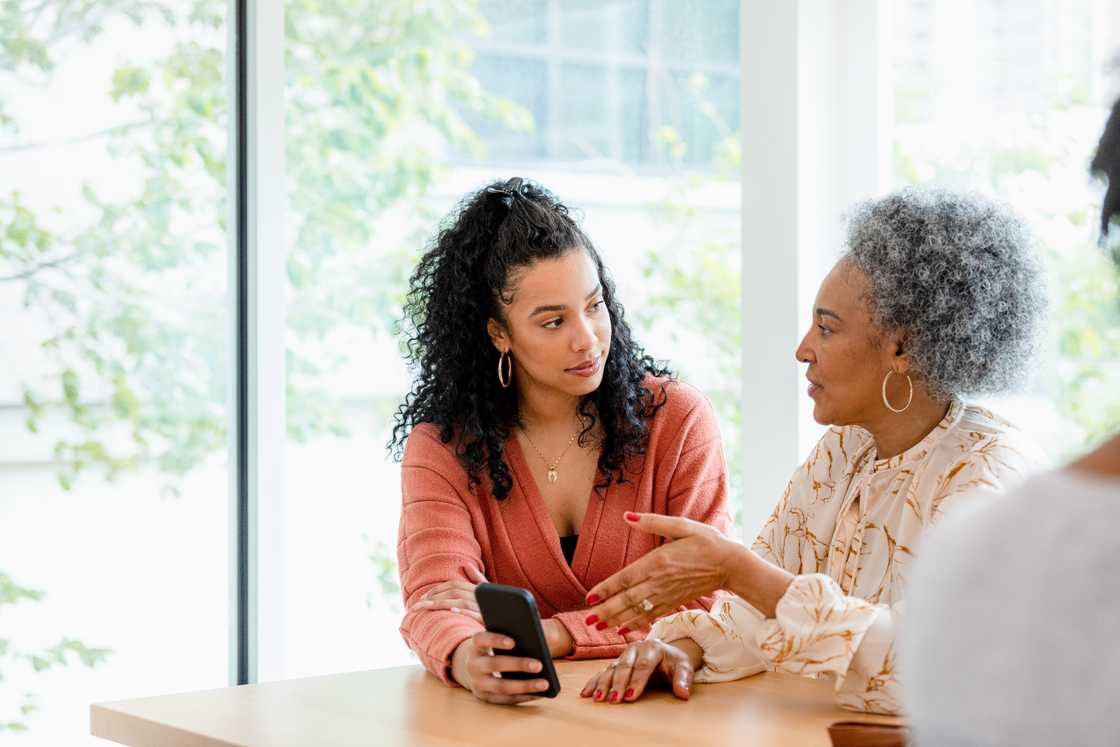
Source: Getty Images
The court battle dragged on for nearly three agonising years, draining me financially and emotionally. The Masekos were betting on my exhaustion, my poverty, and my shame. They thought I would cave. They thought I had no support.
One afternoon, sitting in Thandi's office, staring at the mounting legal fees, I finally did what I should have done from the start. I swallowed my pride, picked up the phone, and called my brother, Lwandle.
"They're trying to take everything, Lwandle," I whispered, the words catching in my throat. "They're questioning the kids."
The line was silent for a moment, and then I heard a voice that cut through my despair.

Source: Getty Images
"Give me the name of the lawyer, sis. We're flying out tomorrow. You are not alone. And no one messes with our family."
My family arrived in a tidal wave of love, logistics, and quiet rage.
My brother Lwandle, a successful corporate lawyer in his own right, reviewed Thandi's strategy and immediately brought in his own team to work pro bono. My sister Siyanda took the kids in full-time and ensured they thrived. My parents refinanced a small property to cover the remaining costs.
The Masekos, who had assumed I was an orphan with no resources, were stunned by the organised, professional counterattack.
But the biggest reveal wasn't my family's hidden support; it was my own quiet resilience and a secret project I'd started during the darkest days of the conflict.

Source: Getty Images
Remember my old job? Freelance marketing consultant. The pressure of the lawsuit had been a cruel master, but also a motivator. When I wasn't fighting in court or working a minimum-wage job, I was building something. I founded Sizanani Digital.
It started as a simple side hustle, helping small, local businesses with their digital presence. But I had an innate talent for it, a focused determination born from desperation.
I worked late into the night, leveraging my years of experience, turning my motel room or a friend's spare bedroom into an office. I charged fair rates, delivered exceptional results, and relied solely on word of mouth.
The twist was this: as the court case slowly dragged on, my little side hustle exploded. I landed a major client that initially required me to hire a small team, and then I moved into my own small but legitimate office.

Source: Getty Images
When the judge finally issued his ruling on the final distribution of assets, granting me partial, but substantial, inheritance, the Masekos had one last, sneering shot.
"She fought all this time for money she clearly doesn't need," my mother-in-law muttered loudly as we left the courtroom.
I stopped and looked back at her. I didn't raise my voice.
"You're right," I said calmly. "I don't need it. I have my own company now. A successful one. But I had to win this to teach my children one simple lesson: Our name is not for sale, and our dignity is not negotiable."
They tried to erase me as an equal partner and a mother. I came back as a CEO. The moment the funds were officially transferred was anticlimactic. I stared at the seven-figure deposit in my account, money that represented years of pain, betrayal, and relentless fighting, and felt no triumph, only peace.

Read also
"She Failed the Test," Someone Whispers — Baby Kept in Nursery; Lab Memo Clears Her for Skin-to-Skin

Source: Getty Images
The irony was not lost on me. By the time I won the inheritance, Sizanani Digital was a rapidly growing firm. I was earning more in a quarter than the total sum I'd spent fighting the lawsuit.
The Masekos had successfully forced me out of my comfort zone and, in doing so, forced me into my destiny. The money was irrelevant to my current financial standing, but it was everything to my soul. It was a tangible piece of my children's legacy, a symbol of the rights their father intended for them, even if he was too weak or manipulated to secure them fully.
The resolution wasn't about buying a bigger house or a flashier car. It was about turning a weapon of pain into a shield of hope. I founded The Sizanani Fund.
It's a non-profit initiative dedicated to providing legal and emotional support to other widows, particularly those with children, who are facing malicious, financially motivated inheritance disputes from hostile in-laws.

Source: Getty Images
We provide seed money for legal retainers and connect them with a network of pro bono and low-cost attorneys. The first grant went to a woman named Sofia, whose story echoed my own: a sudden death, a shocking paternity challenge, and overwhelming financial strain.
A year after the final ruling, I received a handwritten card from Mrs Maseko Senior. It wasn't an apology. It was a passive-aggressive suggestion that I use my 'newfound resources' to buy Zolani's father a much-needed new golf cart.
I tossed the card in the trash. The karma wasn't for them; it was for me. I didn't need their permission or their approval. I had taken their malice and forged it into a mission.
Every time a woman like Sofia won her case, it wasn't just a legal victory; it was a personal reminder to the Masekos that my name, Olivia Maseko, now stood for more than just their late son's wife. It stood for strength, independence, and a refusal to be silenced.

Source: Getty Images
What I learned through years of living on the knife-edge of survival is this: Sometimes, it is worth fighting a battle not for the prize, but for the purity of the narrative.
I fought for that partial inheritance not because I was poor, but because I refused to let my children grow up knowing that a powerful family could erase their mother's name, question their birthright, and walk away clean. I had to win to set the precedent for Kwanda and Amelia.
They will now know, intrinsically, that when someone tries to walk all over them or steal their dignity, they must stand their ground. They must fight for the truth, even if the cost is immense. Their legacy is not the money their father left them; it is the courage their mother showed them.
There is also a more profound, more comforting lesson. I spent so long feeling utterly abandoned, focusing on the betrayal of one family. But in the end, the cavalry arrived. My own family, comprising my sister, my brother, and my parents, provided the proper, unshakable foundation.

Source: Getty Images
They didn't judge my mistakes or my financial situation; they loved me and fought for me. I realise now that I was never alone. I had confused Zolani's immediate family with my own, and when the former failed me, the latter stepped up.
There is love at home. It is a constant, steady current that will hold you up when you are too tired to swim. If I could speak to the woman who was couch-surfing, lost and heartbroken, I would tell her this:
Your worth is not tied to a legal document or a last name. You have the power to rebuild, and sometimes, the people who try to break you are simply clearing the ground for the empire you were meant to build.
What part of your own life have you allowed others to define, and what will you do today to take that definition back?
This story is inspired by the real experiences of our readers. We believe that every story carries a lesson that can bring light to others. To protect everyone's privacy, our editors may change names, locations, and certain details while keeping the heart of the story true. Images are for illustration only. If you'd like to share your own experience, please contact us via email.
PAY ATTENTION: Follow Briefly News on Twitter and never miss the hottest topics! Find us at @brieflyza!
Source: YEN.com.gh

